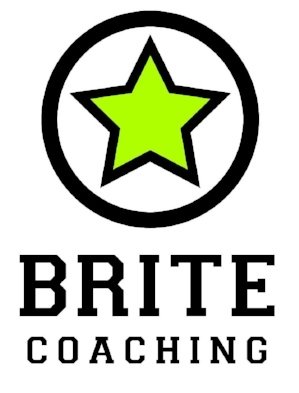Athletes~
You can expect another two or three emails like this - athlete-centric and performance-based - over the next 6 days.
Then I’ll spare you all more emails however I do hope you can all take away a nugget of information that sticks and helps ground you in the heat of the moment.
If you care to read or re-read any of last weeks’, please visit http://brite.coach/new-blog/ (People, Pods & Reads).
I continue to add more athletes to this list so please do visit my website for the back log of entries.
———————
Monday, July 24th
Athletic Success
The greatest challenge I face as a coach of endurance athletes is managing ‘athlete fatigue' levels and how it directly impacts and relates to consistency in training. What I have noticed is that athletes who successfully manage fatigue are more consistent with their training (and happier) and ultimately experience overall athletic success. By athletic success I mean their capacity to do the workouts as intended (volume and / or intensity) in training as well as having the ability to execute during races with a performance they are proud (usually fostered by confidence, self-belief and sans ego).
Whether your athletic career is built on the next 6 days, 6 weeks, 6 months or 6 years, every day presents an opportunity to develop constructive athletic behaviours. The ultimate goal is to manage the influx of stress load (fatigue) with sufficient recovery thereby allowing your true and honest fitness to rise (growth).
I’ll be brief on a few of the points that contribute to athletic success…
Chasing Fitness.
Strava has really helps us out here, right? If you find yourself always chasing trophies, KOM’s or QOM’s, segment wins, personal bests in workouts or comparing yourself against “faster” athletes in a workout, save your energy. Rewards will be short-lived and completely delusional. If comparison is your game of choice, consider how little you truly know about that person and their training, athletic history, sleep patterns, life stressors, sacrifices, nutrition, family and genetics. Instead of chasing (that action alone is a stressor), focus on consistency in repeating efforts (back it up day in day out) and zooming out when the minutiae of irrelevant details cloud your vision. What actions, behaviours and efforts really affects your long-term goals? Focus there.
Training Partners.
Choose your training partners wisely. Really consider who you are spending those long training hours with and what it is about them that brings out the best athletic behaviours in you. Think of the energy they create in your body and even in a group dynamic. Over the years, I have had a small handful of people would be considered as my go-to training partners. I gravitate to them because they are mentally strong, fun, can sometimes go with the flow, don’t race me and rarely try to change my focus for the day. In return, I offer them the same respect. Whether we train side by side or just share the road together, we are in sync and equally committed to the work we have to do.
Surround yourself by those that bring out the best in you. You will undoubtedly return the favour.
Chasing Averages.
If you follow Hunter Allen’s Power-based Training Handbook to plan workouts or exclusively use numbers in the absence of what your body gives you on the day to direct your training (and then add 5-10% to the intensity), you will crack at some point. This is speaking to those that use a power meter on their bike [or pace in running]. Prior to knowing what your average was for a ride or run, athletes tend to think they are always riding or running harder than they actually were. When we chase, our perception of effort is off kilter and usually inflated.
This concept is especially important in racing longer endurance events. If you chase an average watt range (say 180-190watts), the majority of your ride will be well over that range and you’ll fail to notice the power spikes you are using to manipulate your average. In other words, you are burning costly matches. At some point in the near future, your legs will shut off and watt averages won’t be the deciding factor for a performance. I would rather hear you report that while your watts were steady, your perception of effort was much lower. That’s economy.
Use this week, to set up your devices so the readings give you all the information to mange your effort. Remove all the punchy, testing, ego driven spikes (unless they are planned into your training). Pay close attention to how you feel at what effort. Feel is an invaluable sensation…especially if the power meter drops out or garmin dies….the road is still there for you. The same road you may’ve ridden a billion times.
Be Deliberate.
Purpose feels good. Intention feels right. Very fit athletes have insatiable capacity to train a bit too hard. When done over and over and over, the recovery requirement increases dramatically and the training benefits are reduced significantly.
If this is race week for you, your “training” is done. It’s time to let the fitness rise to the surface. If this is an important training block for you, color inside the lines of the workout, more is not always better. If you are recovering from a race, be deliberate with your recovery techniques. In all cases, your body will get stronger with consistency.
The final three points are maybe obvious but must be mentioned:
• Sleep (see http://brite.coach/new-blog/20162017/047/0720/having-the-courage-to-rest).
• Life stress. Consciously choosing to do less in order to achieve more…thank you Seth Godin:
http://sethgodin.typepad.com/seths_blog/2017/01/more-and-less.html
http://sethgodin.typepad.com/seths_blog/2011/12/the-more-or-less-approach-to-getting-and-keeping-a-job.html
• Nutrition. Eat real food with minimal ingredients.
